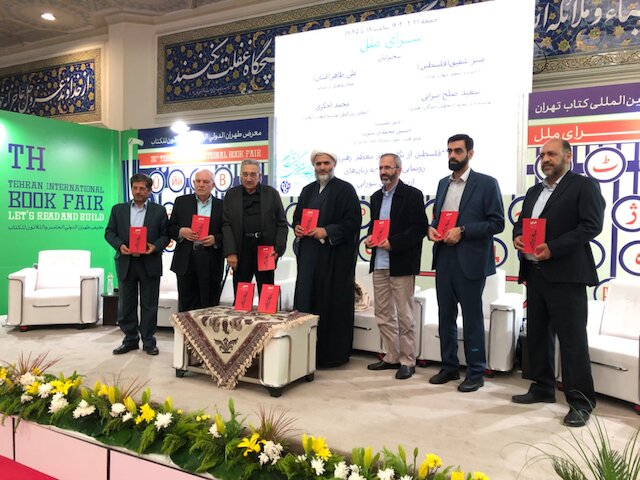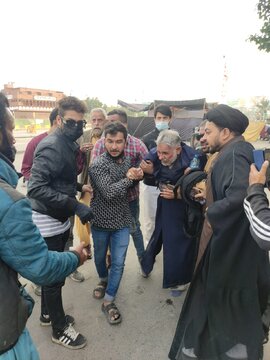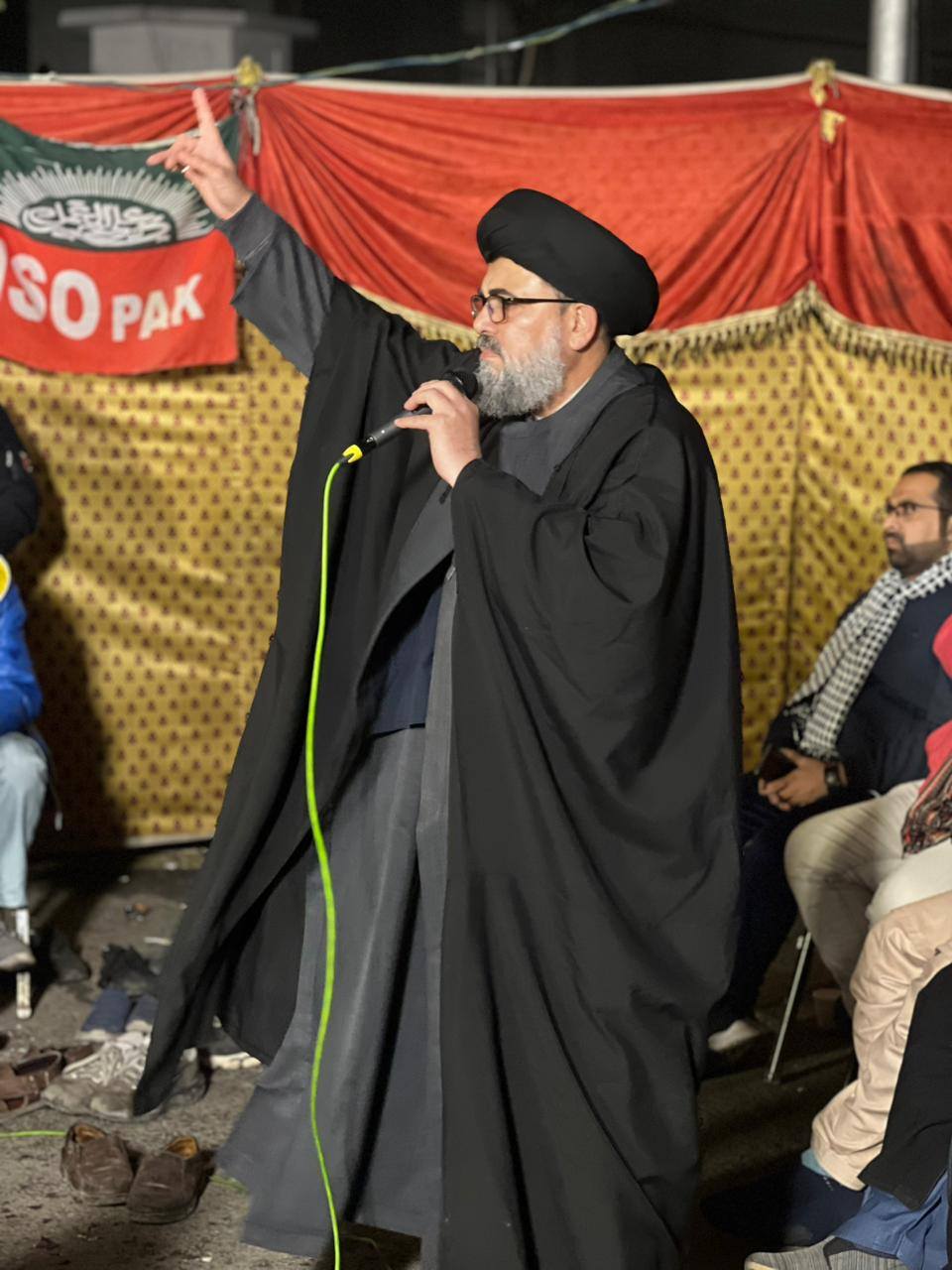AhlulBayt News Agency: The book "Palestine", a compilation of descriptions, analyses, and proposed solutions by Imam Khamenei on the issue of Palestine, was unveiled in the Urdu and Kurdish languages at the Tehran International Book Fair by the efforts of the International Department of the Enghelab-Eslami Cultural & Research Institute on May 10, 2024.
By the efforts of the International Department of the Enghelab-Eslami Cultural & Research Institute, the book "Palestine" was unveiled in the Urdu and Kurdish languages at the Tehran International Book Fair.
The book "Palestine" is a compilation of descriptions, analyses, and proposed solutions by the Leader of the Islamic Revolution on the issue of Palestine. Given the significance and influential position of Imam Khamenei's perspective on the Palestinian matter, and the unique current circumstances, this book has been translated and made available in various languages such as Arabic, English, Russian, Turkish, and others.
During the aforementioned session, both domestic and foreign guests discussed their approaches.
Hujjat al-Islam wal-Muslimeen Saeed Solh Mirzai, a member of the Assembly of Experts and author of the book “Palestine”, was the first speaker of the book unveiling session. He initially expressed his gratitude towards all the attendees and guests, as well as the respected officials at the International Department of the Enghelab-Eslami Cultural & Research Institute for their dedication in translating the book "Palestine" into various languages and for coordinating this event.
The author stated that "The issue of Palestine is closely linked to the movement led by Imam Khomeini (ra). Since the beginning of the uprising, in addition to fighting against the tyranny and the dictatorship of the Shah’s regime, he fought against Israel and sought the destruction of this regime, as well as the liberation of Quds and Palestine. Since the beginning of the Islamic Revolution up until now, the Leader of the Islamic Revolution has also placed the fight against the Zionist regime and the empowerment of the Palestinian mujahideen movements on the agenda. His main strategy has been to foster these movements' independence in producing weapons, designing and carrying out operations, as well as enhancing their ability to advocate for Palestinian rights in international organizations."
Hujjat al-Islam wal-Muslimeen Saeed Solh Mirzai pointed out that the book “Palestine”, compiles the views and opinions of the Leader of the Islamic Revolution on the issue of Palestine, shedding light on his fundamental strategies and solutions to solving this important issue. This has angered the Prime Minister of the Zionist regime, who has spoken about this book in the United Nations, referring to it as Imam Khamenei's plan for the destruction of Israel.
The translation of this work can shed light on the opinions of the Leader of the Islamic Revolution on this matter for other Muslims and freedom-seeking individuals worldwide.
The author emphasized that, "Due to the importance of Palestine for Urdu and Kurdish speakers, this book has been translated into these two languages, and it is hoped that all the Muslims and freedom fighters around the world will become familiar with the contents of this book and fulfill their duties towards Palestine. God willing, they will soon pray together in gratitude in the noble Al-Quds."
As the second speaker at the session, Sheikh Ali Zaher, head of the Farsi translation department of Lebanon’s Ma'aref Association, briefly spoke about the importance and guiding nature of the statements made by the Leader of the Islamic Revolution for officials, elites, and the general public. He emphasized the necessity of translating the thoughts of the Leader into various languages, particularly with regards to the current global issue of Palestine.
The third speaker in the session was the prominent Lebanese professor, Mounir Shafiq. He mentioned that, "I pay close attention and listen to all of Ayatollah Khamenei’s statements." He commended the special role and position of the Leader of the Islamic Revolution as an influential marja’ taqlid [religious authority], and emphasized the importance of translating the opinions and approaches of Imam Khamenei.
The unveiling of the book on Palestine in Urdu and Kurdish languages took place at the conclusion of the session in the presence of guests attending the event.
/129
The book "Palestine", a compilation of descriptions, analyses, and proposed solutions by Imam Khamenei on the issue of Palestine, was unveiled in the Urdu and Kurdish languages at the Tehran International Book Fair by the efforts of the International Department of the Enghelab-Eslami Cultural & Research Institute on May 10, 2024.
12 May 2024 - 10:18
News ID: 1457972





